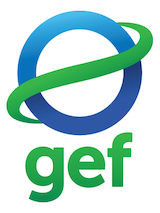Democratic Republic of Congo- Second National Communictation
Project Overview
The creation of a National Communication offers countries the opportunity to contribute with technically sound studies and information that can be used for designing mitigation and adaptation measures, and project proposals that can and will help increase their resilience to the impacts of climate change. Activities generally include: V&A assessments, Greenhouse Gas Inventory preparation, Mitigation Analysis or Education, and awareness raising activities.The ultimate goal is the integration of climate change considerations into relevant social, economic and environmental policies and actions.
Key Vulnerabilities identified in the Democratic Republic of Congo's Second national Communication (2009):
- Water Resources
- Coastal Area
- Health
- Agriculture
- Land and Ecosystem Degradation
Project Details
Potential Adaptation Measures identified in the Democratic Republic of Congo's Second national Communication (2009):
Water Resources
- Evaluation and monitoring of the water resources, particularly those of the River Congo system and its tributaries.
- Evaluation of the impact of this system on the quantity and quality of underground water.
- The characterization and development of the watersheds identified in the city of Kinshasa for control of the surface run‐off.
- The protection of the water resources against pollution.
- Recourse to adaptation infrastructures capable of supporting the projected hydrological variations, and the economic, social and ecological costs of the adopted measures.
- The establishment of communities on the Kinshasa hill areas, after development, and on the BatÈkÈ Plateau in order to protect them from the injurious effects of floods.
Coastal Area
- Regulation of mangrove development
- Coastal Area Development Policy
- Delineation of building and residential areas
- Diversification of activities and rationalization of farmers/fishemen
Health
- Reinforcement of the medical personnelís professional capacities,
- Identification and destruction of the pathogensí hideouts,
- Organisation of preventive actions against vectorial diseases,
- Reinforcement of the cleansing system,
- Organisation of the populationís education and training, and the raising of its awareness,
- Improvement of the food supply system.
- Popularisation of the use of anti‐mosquito grids,
- Use of impregnated window screen,
- Eradication of mosquito deposits,
- Mosquito eradication on a national scale
- Reinforcement of the populationís nutritional capacities,
- The fight against social exclusion and community promotion
- Mapping of the habitat areas at climatic risk
Agriculture
- Use short‐cycle varieties, maize, rice and beans in particular
- Develop livestock breeding
- Upgrade alternative crops (peanuts and beans)
- Reinforce soil conservation activities
- Build reservoirs and water retention ponds
- Develop intensive livestock breeding
- Integrated crop protection
Land and Ecosystem Degradation
- Develop reforestation and soil conservation programmes
- Development of more efficient agro‐sylvo pastoral management methods
- Promotion of renewable energies and domestic fuels as substitution for ligneous fuels
- Participative and community management of natural resources by the civil society and the rural communities
Key Results and Outputs
- Sustainable development and the integration of climate change concerns into medium- and long-term planning
- Inventories of anthropogenic emissions by sources and removals by sinks of greenhouse gases
- Measures contributing to addressing climate change
- Research and systematic observation
- Climate change impacts, adaptation measures and response strategies
- Education, training and public awareness
Reports and Publications
Assessments and Background Documents
Democratic Republic of Congo- Second National Communictation 2009 English (Executive Summary)
Democratic Republic of Congo- Second National Communictation 2009 French
Monitoring and Evaluation
In 1992, countries joined an international treaty, the United Nations Framework Convention on Climate Change, to cooperatively consider what they could do to limit average global temperature increases and the resulting climate change, and to cope with whatever impacts were, by then, inevitable.
Parties to the Convention must submit national reports on implementation of the Convention to the Conference of the Parties (COP). The required contents of national communications and the timetable for their submission are different for Annex I and non-Annex I Parties. This is in accordance with the principle of "common but differentiated responsibilities" enshrined in the Convention.
The core elements of the national communications for both Annex I and non-Annex I Parties are information on emissions and removals of greenhouse gases (GHGs) and details of the activities a Party has undertaken to implement the Convention. National communications usually contain information on national circumstances, vulnerability assessment, financial resources and transfer of technology, and education, training and public awareness.
Since 1994, governments have invested significant time and resources in the preparation, collection and validation of data on GHG emissions, and the COP has made determined efforts to improve the quality and consistency of the data, which are ensured by established guidelines for reporting. Non-Annex I Parties receive financial and technical assistance in preparing their national communications, facilitated by the UNFCCC secretariat.



